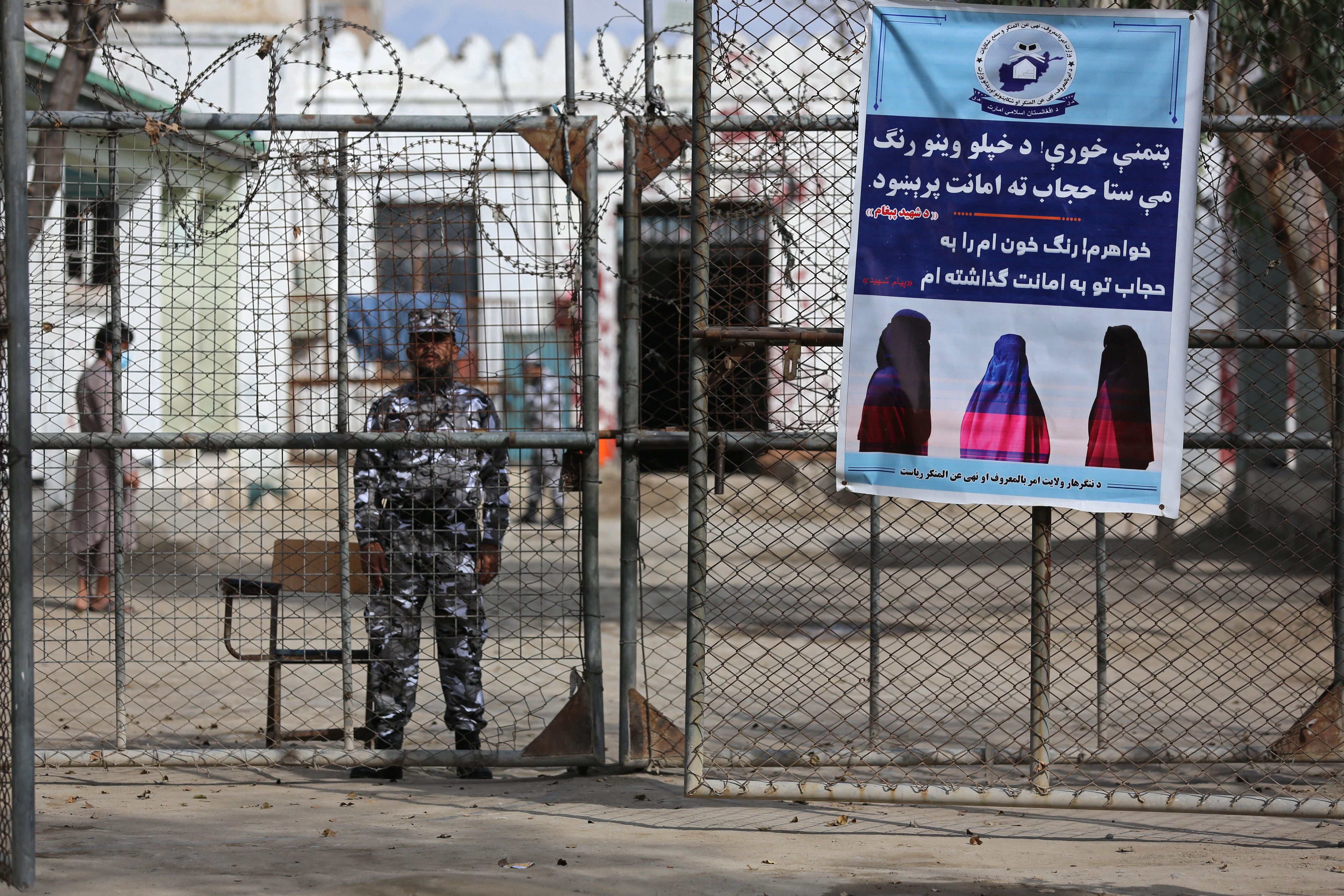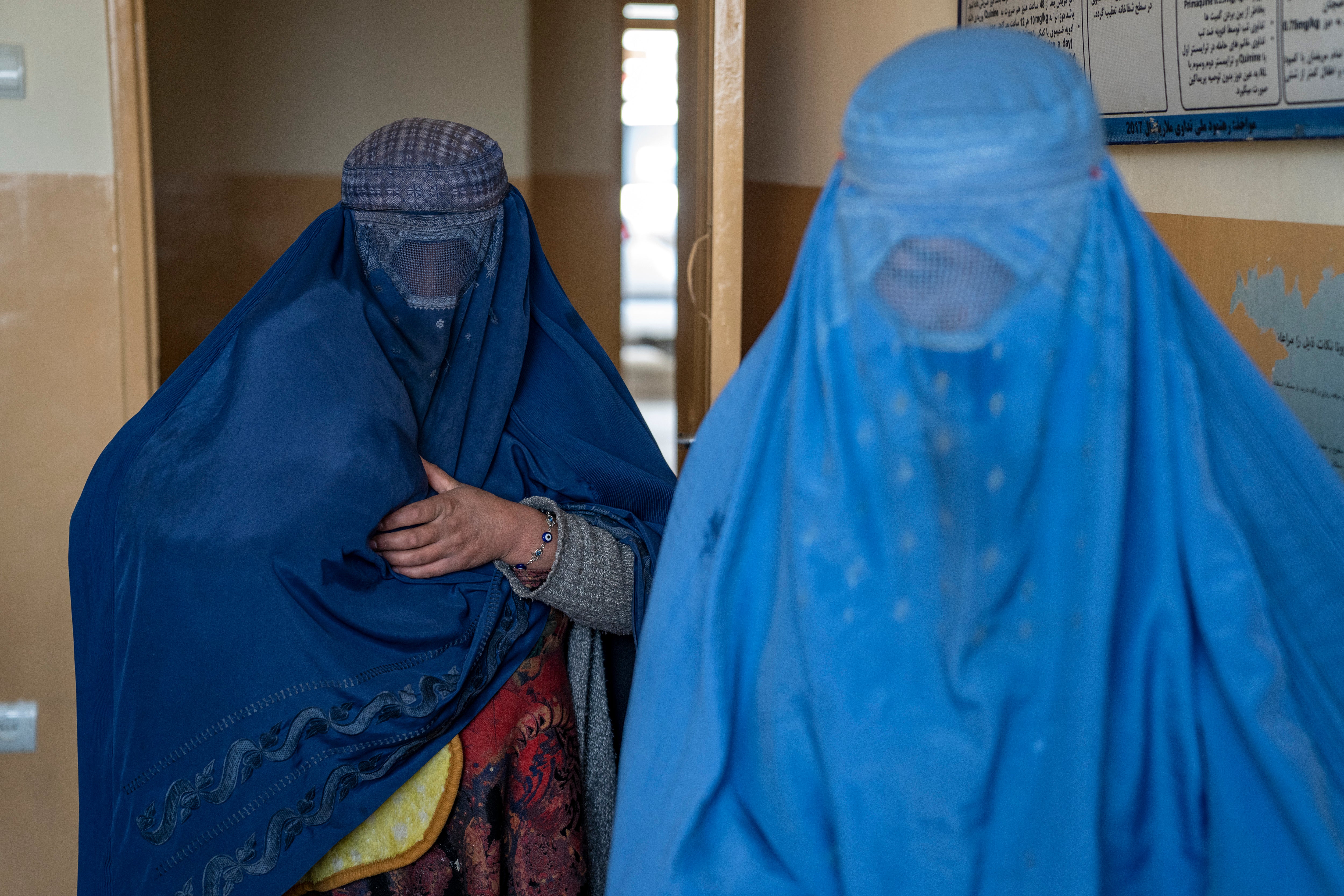Ban on women workers is already hurting Afghanistan’s economy, study finds
‘The most principled response to the Taliban’s misogyny would be finding ways to mitigate the harms inflicted on women,’ says ICG

The Taliban’s sweeping rollback of women’s rights in Afghanistan is deeply hurting the crisis-stricken nation’s already fragile economy, a new report has warned.
The report, titled Taliban Restrictions on Women’s Rights Deepen Afghanistan’s Crisis, was released on Thursday by the International Crisis Group (ICG), an independent organisation that studies conflict and policy.
The group urged the international community to help mitigate the crisis instead of taking action that unintentionally worsens it.
The report is based on dozens of interviews with current and former Afghan officials, teachers, students, aid workers, development officials, diplomats, business leaders, and other interlocutors.
“Donors are turning away from Afghanistan, disgusted by the Taliban’s restrictions on women’s basic freedoms,” said Graeme Smith, ICG’s senior consultant on Afghanistan.
The Taliban’s severe restrictions on what women are allowed to do have led to a decrease in support for the country from donors, something the conflict-ridden nation relies on heavily, the research notes. Such support accounted for 40 per cent of the country’s GDP in 2020.
Since the Taliban government announced a ban on women attending university and working in offices (including NGOs), funding cuts have become more likely as many Western politicians fear their voters will not accept the idea of their taxes helping a country ruled by the Taliban, the researchers said.
The report states that donations from Western governments seem poised to fall significantly short of the UN’s appeal for $4.6bn (£3.8bn) in humanitarian aid, and key donor meetings about development assistance have been cancelled.
The sweeping restrictions on women’s rights are also already being felt in key economic areas such as agriculture and healthcare, with women’s unemployment rocketing and many families losing their primary breadwinner, the report notes.
The poverty rate in Afghanistan is already high, with an estimated 47 per cent of the population living below the poverty line. It was expected to increase after the Taliban takeover as the outlook for economic growth appeared increasingly bleak.

The agricultural sector, which employed the largest number of Afghan women, has been hit hard. Women farmers are now often barred from selling their produce in local markets and are unable to access training or other resources, leading to a decrease in agricultural output, the report states. The situation has worsened the country’s already high levels of food insecurity.
The report says that, as women made up a significant proportion of the country’s labour force, their exclusion has led to a decrease in productivity and economic growth.
The situation is particularly dire in sectors such as education and healthcare, where women have historically held important roles.
The economic outlook for Afghanistan is already bleak, with a contraction of 30 per cent expected to have taken place in 2021 along with a further decline in 2022. But the report warns that if aid shipments are reduced by 75 per cent in 2023, economic growth in Afghanistan could fall to one or even zero per cent annually, leading to deepening poverty for the growing population, with 500,000 new job-seekers each year.

In addition to the impact of the Taliban’s policies, Afghanistan is also facing a growing threat from the climate crisis, as extreme weather patterns, including both flooding and drought, are becoming more common, causing significant damage to the country’s agricultural sector and further deteriorating its economic outlook.
But reducing aid in an effort to put pressure on the Taliban only exacerbates the difficulties faced by ordinary people in Afghanistan. Experts said there is a better way for the international community to help.
“Cutting aid to send a message about women’s rights will only make the situation worse for all Afghans,” said Mr Smith. “The most principled response to the Taliban’s misogyny would be finding ways to mitigate the harms inflicted on women and other vulnerable groups,” he said.







Join our commenting forum
Join thought-provoking conversations, follow other Independent readers and see their replies
0Comments